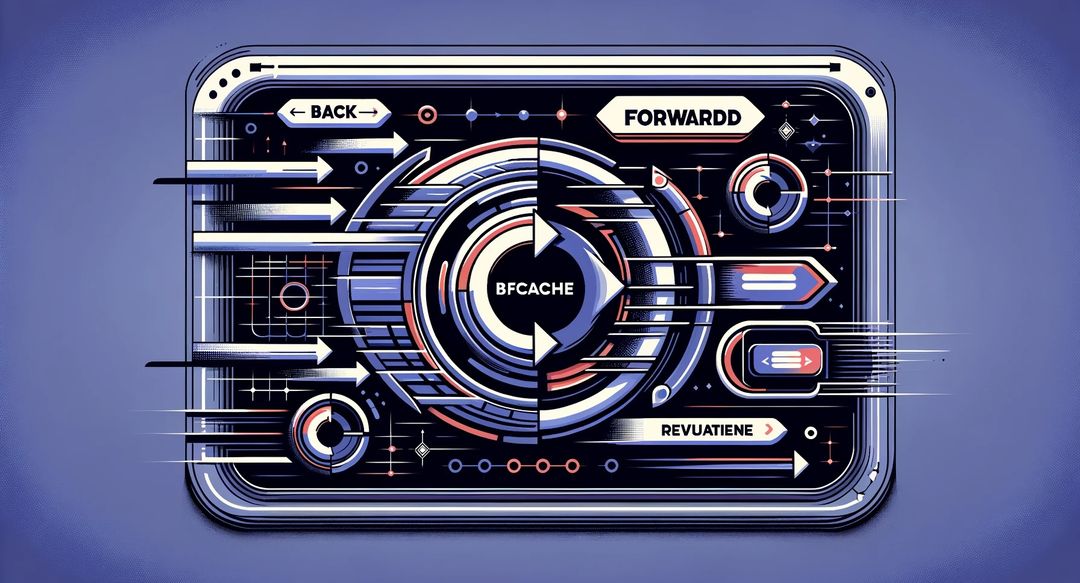3 min read performance
Back/Forward Cache: Revolutionizing Web Navigation Speed
Back/Forward Cache (bfcache): A Developer’s Guide to Lightning-Fast Page Loads with Code Examples
Instant Gratification with bfcache
The Back/Forward cache (bfcache) is a browser’s magic trick for instant page loads. This feature stores a complete snapshot of a page, including the JavaScript heap, making back and forward navigations lightning-fast, especially beneficial for those on slower networks or devices.
Browser Compatibility - Embracing Diversity
bfcache is widely supported across major browsers like Firefox, Safari, and Chrome (since version 86). This means a broad audience can enjoy the benefits of instant loading.
How bfcache Works - Behind the Scenes
Imagine clicking a link, then realizing it’s not what you wanted, and hitting back. Without bfcache, the browser re-fetches the page. With bfcache, it’s like stepping back in time - the previous page loads instantly from memory.
The Impact - More Than Speed
bfcache is not just a speed demon; it’s also a data saver, as resources need not be re-downloaded. Chrome’s data indicates a significant portion of navigations are back or forward, translating to a massive reduction in data transfer and loading time.
Technical Insights and Code Examples
Detecting bfcache Restores with pageshow
window.addEventListener("pageshow", (event) => {
if (event.persisted) {
console.log("This page was restored from the bfcache.");
} else {
console.log("This page was loaded normally.");
}
});
This code helps identify if a page load is a fresh one or a restore from bfcache.
Preparing for bfcache with pagehide
window.addEventListener("pagehide", (event) => {
if (event.persisted) {
console.log("This page might be entering the bfcache.");
} else {
console.log("This page will unload normally and be discarded.");
}
});
This snippet prepares your page for potential caching when the user navigates away.
Conditional Use of beforeunload
function beforeUnloadListener(event) {
event.preventDefault();
return (event.returnValue = "Are you sure you want to exit?");
}
let unsavedChanges = false;
function onPageHasUnsavedChanges() {
unsavedChanges = true;
window.addEventListener("beforeunload", beforeUnloadListener);
}
function onAllChangesSaved() {
unsavedChanges = false;
window.removeEventListener("beforeunload", beforeUnloadListener);
}
Use beforeunload sparingly and only when necessary.
Optimizing for bfcache
To maximize bfcache hit rates, avoid the unload event, use beforeunload conditionally, and be mindful of HTTP headers like Cache-Control: no-store. Also, ensure that sensitive data is updated or cleared after a bfcache restore.
Testing for bfcache Compatibility
Regularly test your pages using Chrome DevTools’ Back-forward Cache panel for bfcache compatibility.
bfcache and Analytics
Adjust analytics to account for bfcache. If not, pageviews might be underreported as bfcache restores aren’t counted as new pageviews by most analytics tools.
Conclusion
bfcache offers a significant boost to user experience with fast loading times and reduced data usage. Understanding and optimizing for it requires some adjustments in development practices but is well worth the effort.
Fun Fact
Did you know that bfcache optimization is like time travel in the web world, ensuring every journey back is as smooth as the first?
Joke Time
Why was the JavaScript developer sad? Because he didn’t grasp how bfcache made his pages load before he even requested them!
Quote of the Day
“Code is like humor. When you have to explain it, it’s bad.” – Cory House. In the world of bfcache, let your code do the talking!


